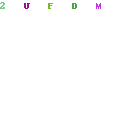So it is just me, or is
it odd that this switches between first and third person narration? On one page
there is a speaker, and then the story is told by some omniscient-god-thing. (At
least that is what I imagine every time there is no “person” telling the story.)
It reads like a school report; part of it is the speaker’s experience and the
rest is what she heard or read in a history book.
After I fumbled over the
spelling, I realized we have another narrator (through both first and third
person) who really digs the main character, Prince Oroonoko. I am not sure who
would win if you put Prince Oroonoko and Beowulf up against each other in an
Epic Rap Battles of History video. (Can I make that video instead of doing the
final exam?) I think Oroonoko would get the pretty award, but there was an
awkward diss hidden in a compliment when Behn describes him on page 2187 as
perfect in every aspect… except for “his color.” I was not expecting tiny
racist remarks until winter break, but Behn beat my relatives to the punch. The
footnote does say that distinguishing race was common at the time, but just
because all the other kids do it doesn’t mean it is ok. Besides that, I think
Prince Oroonoko and Beowulf would be pretty evenly matched in their bravery and
eloquent speech. Of course, there would definitely have to be a guest
appearance by a very steamy Satan from Paradise Lost. (In the end, none of
their fates are good, but funky rhymes would make up for it.)
Anyway, this is a short
post but that’s what I was thinking about while reading Oroonoko. Do I get the weird award?

Weird award granted! I know what rap battles you're talking about though and Beowulf v. Oroonoko would be cool, but I'd rather Beowulf v. Faustus I think. Anyway, I was confused by the narration before. It's an unreliable narrator and I don't understand how they tell this story without pausing to lend a hand in the situation. They purely observe and comment. What gives the narrator this right? And beyond this, I'm still wondering what the point of this story is. That sounds horrible, but I don't understand what the author is really trying to spread or teach. At first, I thought it was pure anti-slavery and anti-racism but there are weird hints that lean towards the other side, so who knows?
ReplyDeleteAnd about his color, we covered this in class, but it's important for the author to describe his as a human and then add his skin color as a sub-detail. People didn't necessarily know what a slave looked like and needed that reference that said, hey, they're just like us. We can only imagine something we've never seen by comparing it to something we see all the time.
The thing that interested me the most about this narration is that the story itself seems to be like a "look at what the slaves go through, isn't that awful?" kind of thing, and yet, yeah, there's this backhanded compliment about how Oroonoko is basically perfect except for his skin. "You shouldn't be held as a slave, but you're still not as good as me" is basically what she's saying. Not totally sure how to feel about that. Wait, yeah I am. It's lame.
ReplyDelete